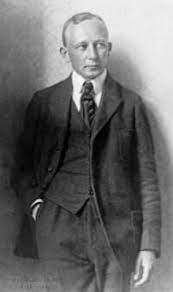Freyer, Hans

Bio: (1887-1969) German philosopher, sociologist, and historian. Hans Freyer taught at the universities of Kiel and Leipzig, and at the University of Leipzig, he founded sociology department. Freyer believed that the historical perspective should be the basis of sociology. The difference between history and sociology is that the latter, from historical data, creates descriptions of social structure. Freyer believed that sociology could not formulate general sociological laws, except in two types of cases. The first type refers to phenomena that occur in different societies but within a single course of history. An example is when the characteristics of one industrial company are generalized so that it also applies to other industrial companies. The second type concerns the cyclical repetition of cultural periods, where it is possible to determine the chronological order of cultural periods within one cycle.
He divided historical periods into those that are positive and negative. The positive ones are orderly and harmonious and do not need sociology, while the negative periods, such as civil society in the early 20th century, need sociology in order for it to exert a positive and constructive influence. The feudal estates system is an example of a positive period, where there is a functional hierarchy of estates, the highest level of social and moral integration, and the most creative organization of people. Feudal society is a source of high cultures. The survival of the feudal society depends on the ability of the ruling caste to use force and prevent rebellions. Since it is built on inequality and domination, the feudal order constantly carries the germ of conflict and revolution. Democratic revolutions created civil society, but also class rule. In civil societies, the possibility of class struggle is constantly present. Freyer also studied the philosophy of culture.
Main works
Die Bewertung der Wirtschaft im philosophischen Denken des 19. Jahrhunderts (1921);
Prometheus: Ideen zur Philosophie der Kultur (1923);
Theorie des objektiven Geistes: Eine Einleitung in die Kulturphilosophie (1923);
Der Staat (1925);
Soziologie als Wirklichkeitswissenschaft (1930);
Einleitung in die Soziologie (1931);
Die Revolution von rechts (1931);
Herrschaft und Planung: Zwei Grundbegriffe der politischen Ethik (1933);
Pallas Athen: Ethik des politischen Volkes (1935);
Über Fichtes Machiavelli-Aufsatz (1936);
Die politische Insel: Eine Geschichte der Utopien von Platon bis zur Gegenwart (1936);
Gesellschaft und Geschichte (1937);
Machiavelli (1938);
Weltgeschichte Europas, 2 Bände (1948);
Theorie des gegenwärtigen Zeitalters (1955);
Schwelle der Zeiten: Beiträge zur Soziologie der Kultur (1965).
Works translated into English:
Theory of Objective Mind: An Introduction to the Philosophy of Culture (1991, in German 1923).

